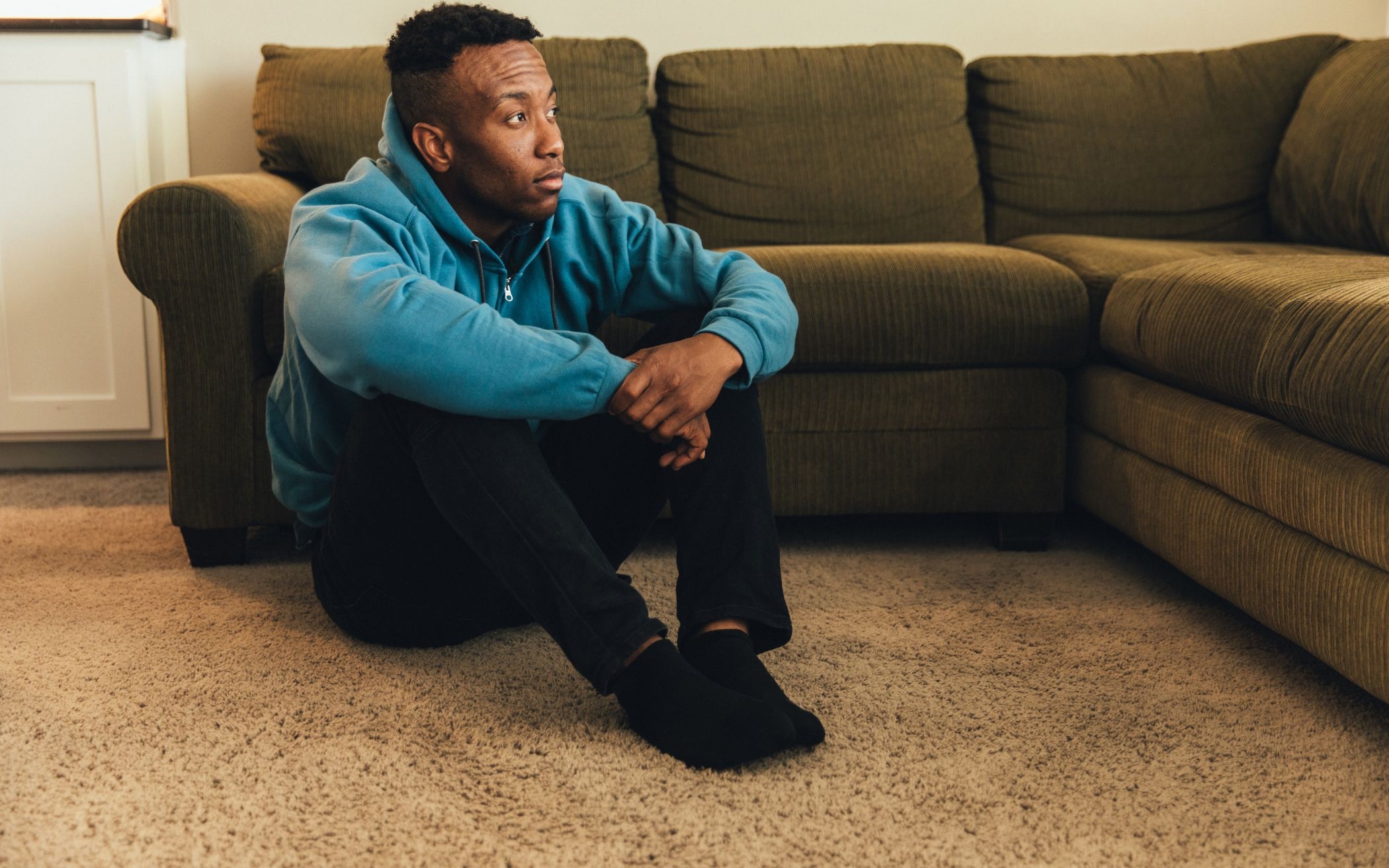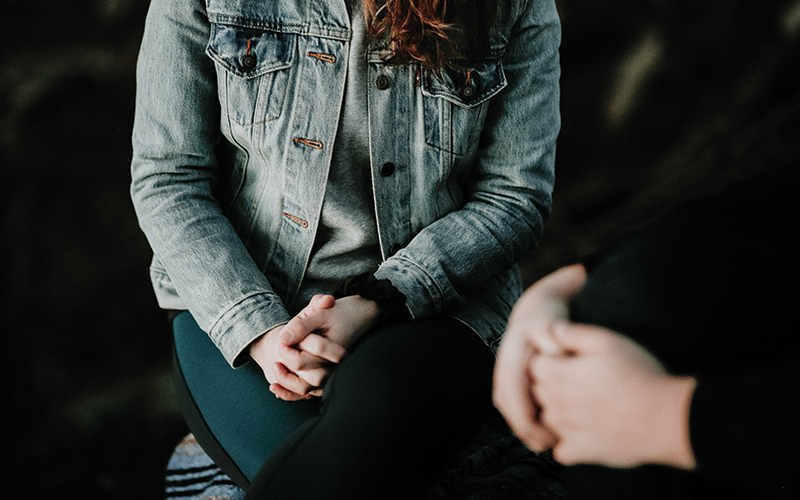There are professionals who can advise you about how to end a relationship as safely as possible.
You may be able to talk to a trusted person who could talk to agencies on your behalf. It can be very hard to end an abusive relationship. Your partner may persuade you that they will change, or threaten you with further abuse or consequences.
You may need to move to a refuge for a while to keep yourself safe. It may take time to plan to flee and you might need to save money and collect important documents like a passport, birth certificate etc.
Is the abuse my fault?
Only the abusive person has the ability to stop the abuse.
Abuse is a behavioural choice. They will tell you that you are responsible; the truth is that nothing you do, or don’t do will change their behaviour. You may feel helpless and believe that you are the only person who can help them to change, but their behaviour is not your responsibility.
Can an abuser change?
Some abusers can change, but the process is long and they would need to want to reform.
Professionals who understand domestic abuse may work in treatment groups to help them to recognise their behaviour. It is our experience that abuse escalates despite claims that behaviour will change. It is not possible for you to change someone else’s behaviour, change has to be actively sought by the abuser.
Who does abuse affect?
Domestic abuse can happen to anyone, regardless of age, gender identity, religion, orientation, ethnicity, income, or disability.
When does it happen?
Domestic abuse can begin at any stage in a relationship but it is rarely a one-off incident.
Incidents of violent, threatening, or controlling behaviour become more frequent and severe over time.
On average people experience 50 incidents of domestic abuse before getting effective help.
What causes domestic abuse?
It is a choice to behave in a violent and/or abusive way – it is not caused by stress, frustration or substance misuse.
There is never an excuse for domestic abuse; it is an unacceptable violation of human rights.
If you think you might be experiencing abuse you can use this website to explore your relationship and find out how to get help.
My partner has been arrested; do I have to go to court?
You might have to go to the trial if there is one, but there are often lots of other hearings you won’t need to attend.
Someone from the Witness Care Unit will contact you and you may be offered the additional support of a Court IDVA (Independent Domestic Violence Advisor).
What services are available for my children?
Oasis offers services for people aged between 5 and 25, we also offer services for children who are in our refuge. Discover our services for children and young people >
To find other local services across Kent and Medway, please visit www.domesticabuseservices.org.uk.
Why don’t victims leave?
Leaving an abusive relationship is a very long and difficult process.
It is important to remember that leaving is a process and not an event and that abuse and risk increase at the point of leaving a relationship.
This is made difficult for a range of reasons. If someone is experiencing domestic abuse, they may:
-
Feel ashamed and reluctant to tell people or seek help
-
Feel frightened and uncertain about what the future will hold
-
Feel it’s in the children’s best interests to stay
-
Find making big decisions difficult and scary
-
Be isolated from family and friends and therefore trying to make decisions and take action alone, without a support structure
-
Be financially unable – financial abuse can restrict access to money / shared finances can make leaving difficult
-
Not know about the services available to them
-
They might have received a negative response when they reached out to someone for support in the past
-
Still have feelings for their partner and hope/believe that the relationship will get better
What does the law say?
Domestic abuse can be a criminal offence and the police can arrest, caution or charge the perpetrator.
You should call 999 in an emergency or 101 in a non-emergency or you can attend a police station in person to report an incident.
If an assault has taken place and is reported, the police will investigate the crime. Where they have a power of arrest, they will normally arrest the suspect. Where there is enough evidence, and if prosecution is in the public interest, this person will be prosecuted.
Criminal and civil law offers important protections for individuals who are experiencing domestic abuse. Court orders are frequently used to protect victims of domestic abuse.
-
A Non-molestation order is a is a court order aimed at preventing your partner or ex-partner from using or threatening abuse / violence against you or your child, or intimidating, harassing or pestering you, in order to ensure your health, safety and well-being
-
An occupation order regulates who can live in the family home, and can also restrict your abuser from entering the surrounding area. If you do not feel safe continuing to live with your partner, or if you have left home because of abuse, but want to return and exclude your abuser, you may want to apply for an occupation order.
You can access free legal advice at your local One Stop Shop– find your nearest one at – www.domesticabuseservices.org.uk
The National Centre for Domestic Violence (NCDV) also provides a free, fast emergency injunction service to survivors of domestic abuse regardless of their financial circumstances, race, gender or sexual orientation.
What are the effects on children?
Domestic abuse can have adverse effects on children and young people and can be traumatic. It can impact upon all areas of life, including, health, education and the development of relationships.
The effects of domestic abuse on children are wide ranging and will differ for each child. Research has shown that experiencing or witnessing domestic abuse is a factor in school dropout and exclusion, youth homelessness and young people engaging in risk taking behaviour. Children and young people have varying levels of resilience and all agencies that come into contact with children and young people who experience domestic abuse, have a responsibility to build upon this resilience.
Is sexting okay?
Sexting can be done in a consensual way but putting pressure on someone to send sexually explicit pictures, sexting, is abusive and not okay.
If someone shares these pictures without consent this is illegal. A new criminal offence to tackle Revenge Porn has been introduced in England & Wales. If you have been the victim of this offence, you can call revenge porn helpline – find details at www.revengepornhelpline.org.uk or talk to us about your relationship.
We can help you to leave your abusive situation, find refuge, get the right advice and support for you and your family, and keep safe.
If you suspect or know that a friend, family member or colleague is experiencing domestic abuse, find out what you can do and how we can help.
Access our referral pathway to connect the person you are working with to the right assessment and support.




